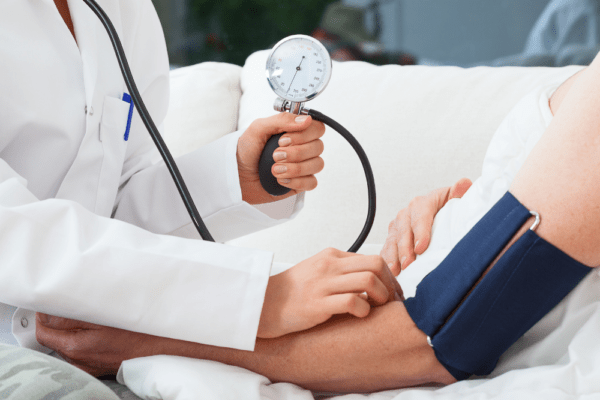Hormones are like those machines in our body that regulate the growing, and another mechanism in our body as we grow younger till the time we grow older. Hormones are necessary for every functioning and mood in a person, such as hunger, metabolism, stress, growth, etc.
If the hormones get unbalanced or if any kind is deficient in these hormones, there are uncertain changes in the body, and one of these changes include the gathering of fat at one single area of the body, which is around the abdomen. It leads to the forming of a big belly due to excess fat around that area.
Sometimes the workout and rigorous fitness regimen doesn’t do any good because a disruption in hormone levels could cause stubborn belly fat that doesn’t budge to reduce itself anytime soon. There are more chances that when hormone levels change, the fat doesn’t burn out; instead, the body becomes more insulin-resistant.
There are many reasons how different hormones have a different effect on the body, especially the increased fat in the stomach area, such as:
Stress Managing Cortisol
Often when our body is trying to fight or manage stress, it has the natural tendency to go into survival mode, not to wear itself. While this whole survival mode is intact, the body releases a cortisol hormone, which helps fight and manage stress entirely.
Cortisol leads to storing more fat inside the body, which is later distributed by the body to different areas such as the stomach, chest, face, etc. Experts have tended to ell that if cortisol keeps releasing for a more extended period, there are chances of several diseases resulting, such as high blood pressure, heart disease, etc.
The accumulation of excess fat in the body might not get redistributed due to being at a single place, causing hormone belly. Hence, the anxiety in you could conclude that you are gaining a hormone belly due to the release of Cortisol.
The chances are that trying to manage stress through natural ways could help if the cortisol level is rising due to stress and anxiety. Still, if the underlying cause is different, then you must meet with a health expert to identify the cause of an increased level of Cortisol.
The Thyroid Hormone
Thyroid Hormones are a primary cause of the hormone belly, especially in women. The hormones released by the thyroid help control the metabolism in our body and which, on the other hand, influences the other organs in the body.
People with hypothyroidism are prone to get more affected with a hormone belly since, in this condition, the body’s thyroid level isn’t up to the mark. When thyroid hormone isn’t up to the recommended level, the person is suffering from hypothyroidism, and the metabolism level does slow.
The storing of energy and burning out process gets slow down, and the next thing visible is stubborn belly fat. Moreover, experts say that this belly weight gain isn’t necessarily a resulting excess fat accumulation factor, somewhat due to salt and water accumulation.
Hypothyroidism is treated with prescribed medication that would help maintain and stabilize thyroid hormone levels in the body.
The Craving of Sugar
The insulin-resistance in the body could cause several issues and disrupt the whole fat burning and having enough energy process in the body. The very first thing that happens is that due to the body’s no reaction to insulin, diabetes becomes your number one enemy, along with the hormones playing with your entire system.
The fat cell in our body releases the leptin hormone responsible for signaling our brain about when to stop eating since we have stored enough energy for fat in the food. What leptin does is target a particular nerve in our brain known as the hypothalamus to signal the feeling of being full.
As an overweight person has a high amount of fat in their body cells and according to the entire mechanism theory, the leptin levels are high. It should signal the weight to stop eating, but what happens instead is the connection between the brain and leptin gets disrupted.
We never receive the signal to stop, which causes the urge to eat sugar more and more. The disruption in leptin receptors is the key reason behind this. A health care expert could offer a change in lifestyle and anti-inflammatory food to change leptin levels in the body.
The lower levels of Testosterone and Estrogen in Males
Testosterone levels in males are essential for their muscle growth, hair growth, and sex drive. The hormone is responsible for the proper regulation of all the male characteristics. But as a person grows older, testosterone levels gradually become lower, and the belly fat increases.
Testosterone deficiency not only causes belly fat but halts muscle growth in a male too. Other symptoms are found again due to lack of testosterone that involves erectile dysfunction, hair loss, fatigue, loss of muscle mass, etc.
The other reason for belly fat due to the hormone in males include estrogen levels. However, there are three estrogen types that a body has, which provide for; estriol, estradiol, and estrone.
For men, estradiol is essential in inconsiderate amounts in the body, and the deficiency of which could cause low sexual desire and fat around the belly. Estradiol is responsible for erectile function, which also gets affected due to the hormone’s deficiency.
For both these conditions, a doctor would recommend making changes in the lifestyle, the meal one consumes, and prescribe supplements.
Polycystic ovary syndrome
PCOS is a common condition observed in women. It affects almost one woman in 10 during their reproductive age, and this is marked as one of the many reasons in women because they gain excess weight, especially around their belly.
PCOS also affects insulin’s ability to break down the energy and leads to higher androgen levels, a male hormone. Other PCOS symptoms include irregular menstrual cycles, hair loss, acne, increasing weight, etc.
A doctor might prescribe drugs for insulin resistance and recommend avoiding foods that could cause a rise in blood sugar levels. There are other hormone therapies prescribed too for eliminating the condition.
The Peri and Post- Menopause Phase
The stages in menopause show how a woman is progressing towards a growing age, which will bring changes in her body. During the menopausal phase, a woman’s estrogen level significantly drops, which leads to an increase in fat in the belly area, causing an increased belly shape.
The best way during menopause to reduce belly is to regularly exercise and eat a diet with low fat in it so that there isn’t an accumulation of fat in the body without breaking it down into energy.
There are certain foods that your physician would advise you to eat that would help you maintain your fat and keep in check the blood sugar level. A healthy diet would mean that you also need to keep up with your exercise regimen and not give up, thinking that the fat is too stubborn to exercise and reduce it.
Burning the extra calories and turning the body fat into energy is necessary, possibly with proper exercise and routine. There could be hormone therapy and drugs that might help you make a change in your belly shape.




